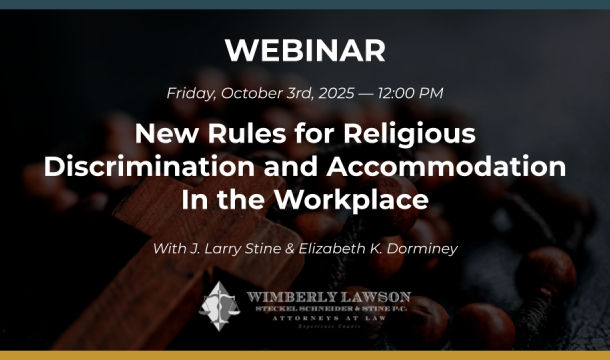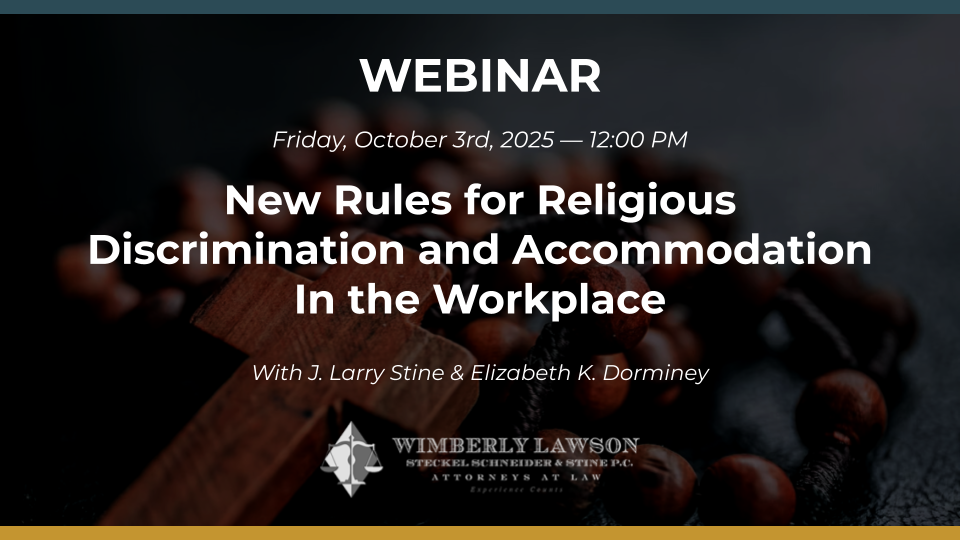What [Your Managers] Say Can Be Used Against [Your Company] in A Court of Law.
Anyone who has watched any police shows on television is aware of the contents of the Miranda warning given to criminal suspects, which includes the admonition that "what you say can be used against you in a court of law." Similarly, in the civil employment litigation context, what a supervisor or manager says can be used against the company as evidence of discriminatory or retaliatory intent. A recent decision from a federal court in Illinois illustrates this principle. In Nutall v. Reserve Marine Terminals, the plaintiff-employee alleged that his employer discriminated against him on the basis of a perceived disability and his age, and retaliated against him for filing a workers' compensation claim. The plaintiff had injured his back severely at work, and following months of medical treatment, he presented a full release to work with no medical restrictions. However, the company did not put him back to work out of concern (that was not supported by any medical examination) that he could not meet the physical demands of his job. The company's manager in charge of workers' compensation claims made multiple comments to the company's workers' compensation office concerning plaintiff's "history of chronic back issues/problems." In its denial of the company's motion for summary judgment on the plaintiff's disability discrimination claim, the Court specifically mentioned the remarks by the worker's compensation manager about the plaintiff's "history of chronic back issues/problems" as evidence that the company perceived the plaintiff to be disabled.
Furthermore, remarks by that same manager also resulted in a denial of the company's motion for summary judgment on the plaintiff's claim of workers' compensation retaliation. In an email to the company's workers' compensation department concerning the plaintiff's claim, the manager labeled the plaintiff's claim as one of a "questionable nature." Additionally, in regards to the plaintiff's workers' compensation claim, the manager stated: "Illinois [workers' compensation]...costs us a lot of money as an employer in IL – It goes way beyond annoying!" In that same email, the manager informed the company's insurance carrier that: "we take a very active and aggressive position when it comes to [workers' compensation] issues" and that "we take it very personally when attempts are made to take advantage of the system." The Court concluded that these comments created a plausible inference that the manager did not believe the plaintiff's workers' compensation claim or resented it.
Remember—a company speaks and acts through its managers and supervisors. Therefore, those managers and supervisors need to be regularly trained regarding current employment laws so that their words and actions cannot be used against the company by a crafty plaintiff's attorney.

Kathleen J. Jennings is a former principal in the Atlanta office of Wimberly, Lawson, Steckel, Schneider, & Stine, P.C. She defends employers in employment matters, such as sexual harassment, discrimination, Wage and Hour, OSHA, restrictive covenants, and other employment litigation and provides training and counseling to employers in employment matters.
Related Content
Get Email Updates
Recent Content

Trump Nominates Appointments to NLRB and EEOC but Policy Changes Likely to Be Delayed

DOL Launches Self-Audit Programs Designed to Help Employers Improve Compliance

DOL Must Release EEO-1 Reports to the Public under Open Records Laws

Current Advice on Active-Shooter Situations

New Policy for Federal Workers and Religious Expressions

